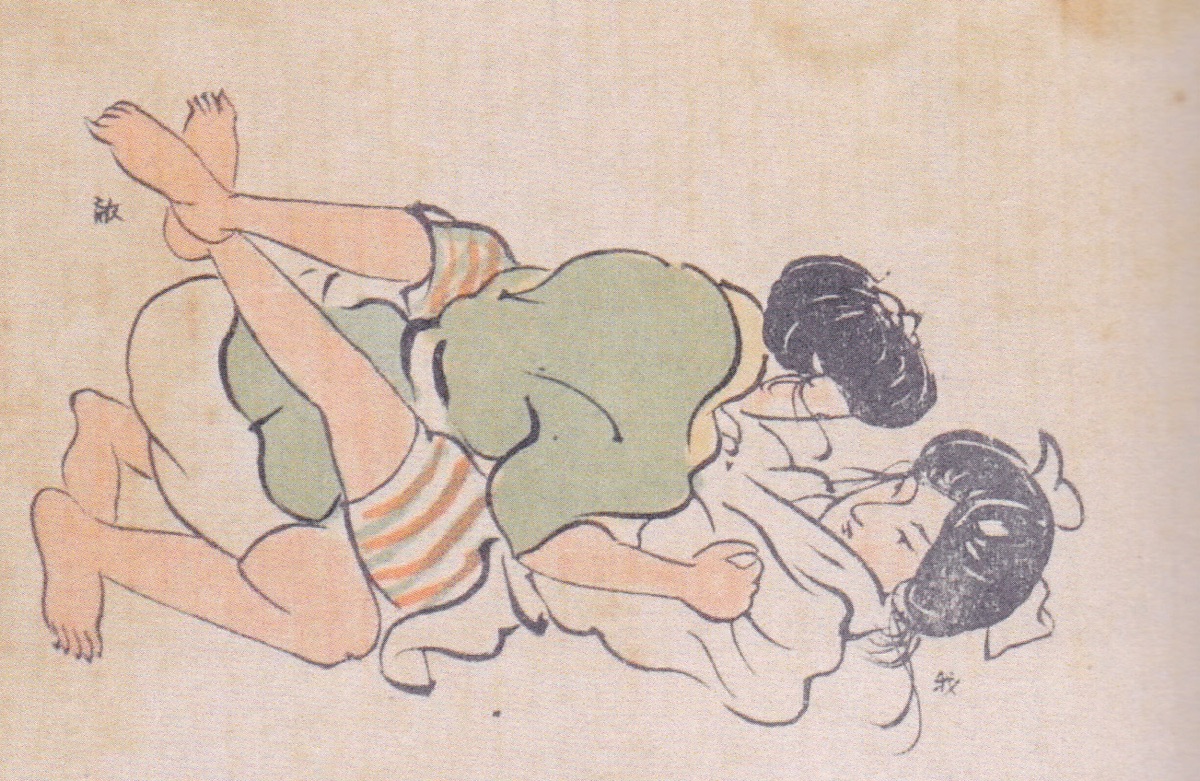Martial Arts for Women: Century-Old Book Details Moves

A translation of a martial-arts book published in 1914, which was written by a woman for women, describes a group of Japanese women who banded together to form the Women's Self-Defense League in order to fight off attacks from men.
Nobatake Yaeko wrote the book — whose title translates as "Self-Defense for Women" — under the pen name Nohata Showa — and she published it in May of 1914. In the book, she describes and illustrates a number of martial-arts techniques that women can use to fight off attackers. These techniques include throws, ways to break an attacker's arm and a technique that strangles the abdomen of an attacker who is trying to rape a woman. [See Photos of the Images of Martial-Arts Techniques from the Book]
It has a detailed chart showing the weak spots on a man (called Kyusho). "Kyusho are points on the body that can cause damage if struck hard, or they can be used to resuscitate a person. If you violently strike any of these Kyusho, it can render a person unconscious and even stop their breath. Good and proper people would do well to learn these points," Showa wrote. The book, written in Japanese, was translated by Eric Shahan, who specializes in translating 19th- and early 20th-century Japanese martial-arts texts. Shahan also holds a San Dan (third-degree black belt) in Kobudo.
The techniques described in the book are derived from a martial art called Jujutsu. "The fundamentals of Jujutsu is to use the opponent's power. You can win by moving nimbly at the right time, without using much power. Should you ingrain these techniques into your body, even a cute weak girl can wrap up a large man and achieve a win!" wrote Showa, according to Shahan's translation.
Showa wrote in the book that she had used the techniques successfully. "While I was returning to my abode from running an errand just the other night I encountered a frightful situation. I was able to imitate the handful of Jujutsu moves I learned and, despite my slight form, was able to avoid falling prey to a dastardly scoundrel. It was an absolutely thrilling experience."
Women's Self-Defense League
In the book, Showa decries what she described as a surge of violence against woman in Japan and talks of an organization called the Women's Self-Defense League, which was formed to combat it.
"My dear sisters, my dear daughters, the way in which the citizens of this country have fallen is truly regrettable is it not?" Showa wrote in the book. Some men "feel no qualms about affecting disrespectful conduct around us." Showa wrote, "A resolute solution to men's debauchery continues to elude us." She also takes aim at Japan's politicians, who she said were ignoring the problem.
Get the world’s most fascinating discoveries delivered straight to your inbox.
The Women's Self-Defense League not only trained women to defend themselves against attackers, but the organization also handed out awards to women who successfully stopped an assault.
"Should any reader of this book have, by chanced toppled, restrained or otherwise through self-defense measures thrown a ruffian or [man] attempting mischief this organization will award you … a large certificate reading 'Meiji Imperial Achievement Award,'" Showa wrote, noting that this award could also be given to women who find new ways to spread martial-arts knowledge, or help more women get access to the book or others like it.
So far, Shahan's research has revealed little additional information on Showa or the Women's Self-Defense League beyond what is given in the book, he said. In the book, Showa "claims to have been a women's historian," Shahan told Live Science in an email. Given the Jujutsu techniques that Showa describes in the book, it's possible that she ran a dojo dedicated to teaching martial-arts techniques to women, Shahan said.
Original article on Live Science.

Owen Jarus is a regular contributor to Live Science who writes about archaeology and humans' past. He has also written for The Independent (UK), The Canadian Press (CP) and The Associated Press (AP), among others. Owen has a bachelor of arts degree from the University of Toronto and a journalism degree from Ryerson University.
 Live Science Plus
Live Science Plus





